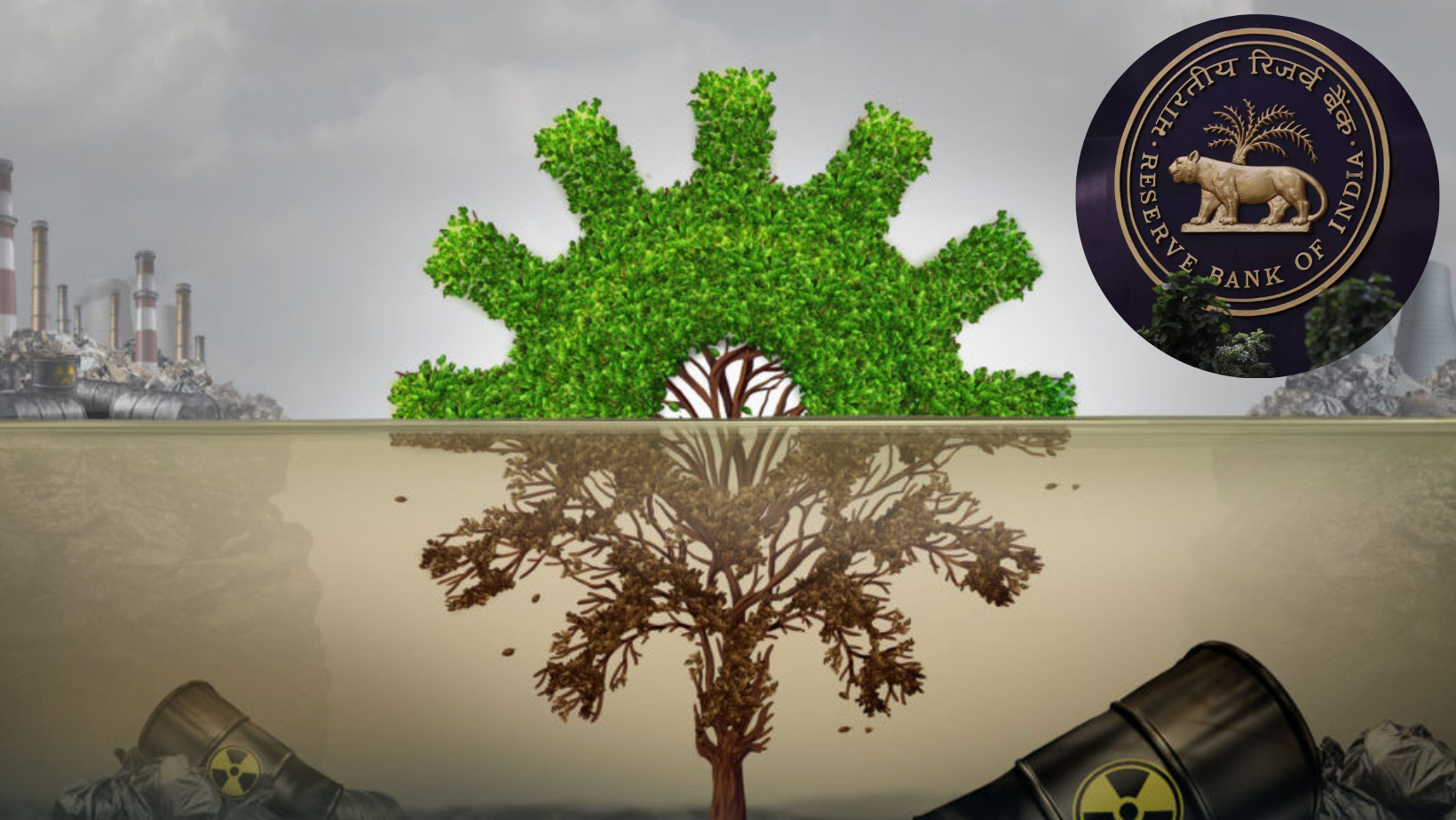India to Make Climate Risk Disclosures Mandatory for Banks

- 02 Mar 2024
Why is it in the News?
While acknowledging the importance of the environment and its long-term impact on organizations and the economy as a whole, the Reserve Bank of India (RBI) has now released a draft framework for banks to follow.
What are Climate-led Financial Risks?
- “Climate-related financial risks” means the potential risks that may arise from climate change or from efforts to mitigate climate change, their related impacts, and economic and financial consequences according to RBI.
- These risks manifest through two primary channels: physical risks and transition risks.
- Physical Risks: These entail the economic and financial consequences arising from the escalating frequency and severity of extreme weather events linked to climate change. Such events can exert pressure on the financial sector in various ways:
- Renewable Energy Sector (REs) Vulnerability: The occurrence of local or regional weather events may strain the anticipated cash flows to REs, impacting their financial stability. Furthermore, chronic flooding or landslides pose risks to the collateral that REs have pledged as security for loans.
- Infrastructure and Property Damage: Severe weather phenomena can inflict damage on the physical assets and data centres owned or leased by REs, impairing their capacity to deliver financial services effectively.
- Transition Risks: These risks stem from the transition toward a low-carbon economy, influenced by factors such as evolving climate-related policies, technological advancements, and changing consumer behaviours. Key considerations include:
- Policy and Regulatory Shifts: Changes in climate-related regulations and policies, along with advancements in technologies, can significantly influence the transition process. Moreover, alterations in customer sentiments and behaviour patterns play a pivotal role in shaping this transition.
- Economic Impact: The transition toward reducing carbon emissions carries substantial implications for the economy at large. It entails a shift toward sustainable practices and investments, which can impact various sectors and industries differently.
- Recognizing and addressing these climate-related financial risks is imperative for ensuring the resilience and stability of the financial sector in the face of evolving environmental challenges.
About the Framework:
- Commencing from the financial year 2025-26, all major financial institutions across India, including top-tier NBFCs and renowned NBFCs, will be mandated to furnish details about governance, strategy, and risk management strategies.
- Additionally, they will be required to initiate disclosure of metrics and targets from the fiscal year 2027-28.
Key highlights of the framework include:
- Enhanced Disclosure Requirements: Banks will be obligated to unveil climate-related risks that could potentially impact their financial stability.
- This measure aims to facilitate a comprehensive understanding of climate-related financial risks and opportunities, fostering early assessment and proactive management.
- Scope of Coverage: The framework encompasses various financial entities, including scheduled commercial banks (excluding local area banks, payments banks, and regional rural banks), Tier-IV primary urban cooperative banks (UCBs), and top and upper layer non-banking financial companies (NBFCs).
- Disclosure Obligations for Renewable Energy Sector (REs): REs are mandated to disclose crucial information related to climate-related risks and opportunities across short-, medium-, and long-term horizons. Key areas of disclosure include:
- Identification of Climate-Related Risks and Opportunities: REs are required to identify and disclose climate-related risks and opportunities relevant to their operations and financial outlook.
- Assessment of Impact: REs must delineate the impact of climate-related risks and opportunities on their business strategies and financial planning, enabling stakeholders to comprehend the implications on their overall strategy.
- Resilience Evaluation: REs are tasked with evaluating the resilience of their strategies in light of diverse climate scenarios, thereby ensuring robustness in navigating potential challenges and capitalizing on emerging opportunities.
Significance:
- A pressing requirement exists for an improved and standardized disclosure framework for regulated entities to mitigate financial risks.
- Without such a framework, there is a risk of assets being mispriced and capital being misallocated, which could have adverse repercussions on financial stability. Consequently, the imperative for a standardized disclosure framework on climate-related financial risks became evident.
